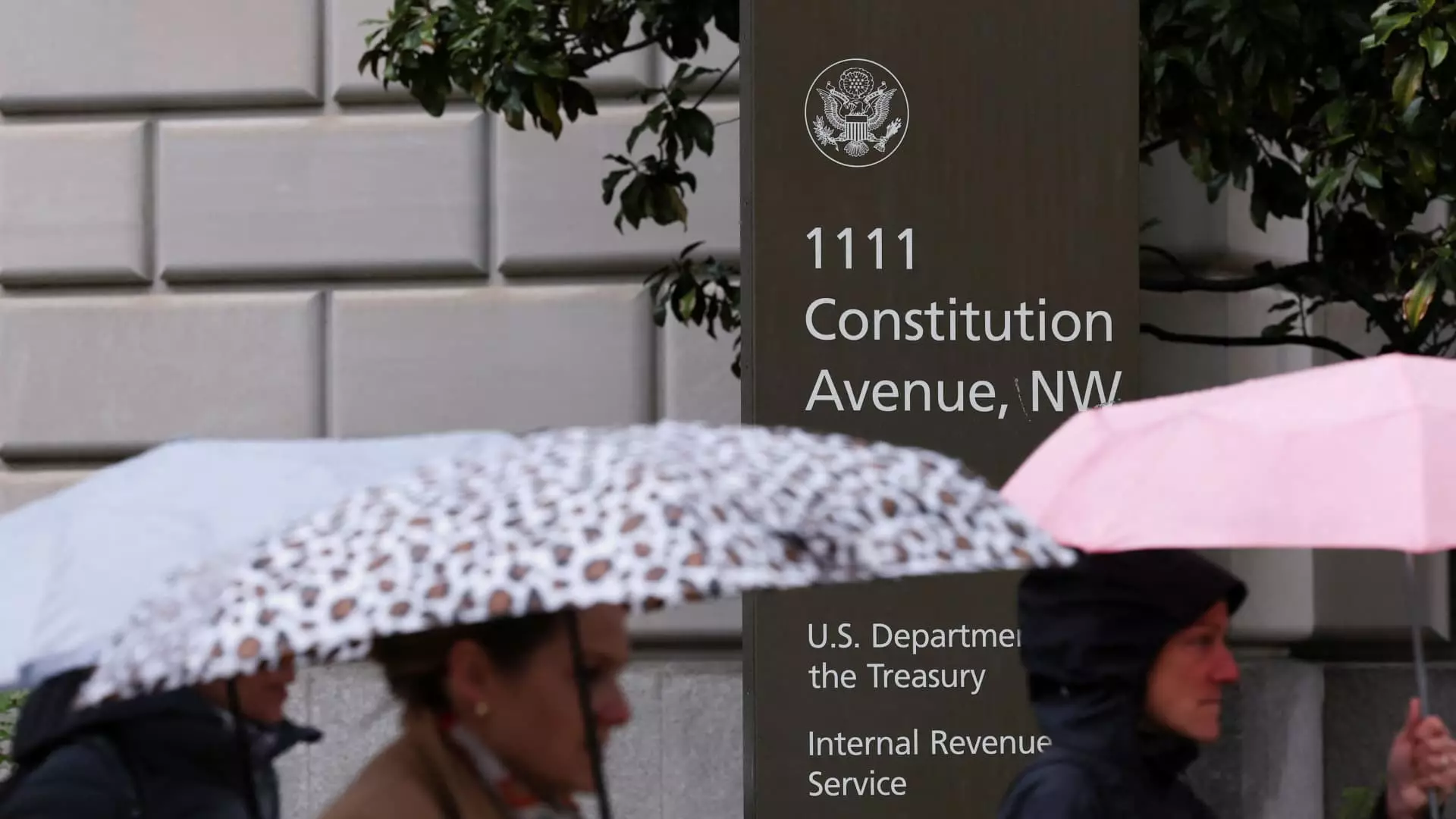As the U.S. grapples with economic challenges in the wake of a tumultuous few years, the recent developments within the Internal Revenue Service (IRS) signal a grim future for tax enforcement and equity in revenue collection. The IRS’s High Wealth division, strategically set up to target high-net-worth individuals and corporations, has faced severe staff reductions, undermining the very purpose it was designed to fulfill. The ramifications of this decline in manpower and expertise could cost the U.S. an estimated $500 billion in lost revenue this year alone.
Wesley Stanovsek, a promising recruit for the IRS in 2024, embodies this downfall. Hired to scrutinize complex tax returns from wealthy entities, his abrupt dismissal—along with many others—sends a chilling message: the very mechanisms meant to ensure fairness in tax reporting are crumbling. With the agency losing one-third of its workforce, the looming specter of audits fading into oblivion becomes starkly apparent. Wealthy taxpayers rejoice at the idea of fewer audits, but behind that facade lies a far more disturbing trend—a tax system too weak to hold the affluent accountable.
A Taxing Problem for the Wealthy
While those with substantial financial resources may breathe easier, they should also recognize the potential fallout of a disjointed IRS. The driving force behind the IRS’s ability to audit tax returns, especially those above the $10 million threshold, had been firmly established under the Biden administration. Yet, with personnel cuts bluntly halting investigations into alleged tax malpractice, the limelight has shifted from accountability to chaos. Kathy Pakenham, a tax attorney in the know, metaphorically described the IRS as “a zombie,” void of direction. This chaos leads only to a deceased audit system and an increasing sense of security for tax avoiders aiming to exploit the cracks forming in this once-solid structure.
For tax attorneys, life has become an unpredictable battlefield. Many report their ongoing audits simply withering away due to inactivity. The deadline for audits—often a mere three years from the filing date—will see potential infractions run out of time without any examination from an IRS agent. The diminishing power of the IRS could breed a new era where high earners stretch their financial maneuvers beyond the legal borders.
The Dangerous Allure of Aggressive Tax Strategies
History offers us a cautionary tale: during the late 1990s and early 2000s, IRS budget cuts sparked a surge in tax shelters and convoluted financial strategies that would ultimately be deemed illegal. Like leaves in a storm, this current bout of personnel shortages will likely usher in more tax schemes that capitalize on the IRS’s inability to flag illicit behavior. A recent study conducted by Yale Budget Lab projects that if the cuts continue over the next decade, the financial toll could run at least $160 billion—an overwhelming figure that speaks to the enormity of the issue.
At the heart of these developments is a paradox—while technology advances toward incorporeal efficiencies, human expertise is increasingly sidelined. The Treasury Secretary, Scott Bessent, remains optimistic about the integration of artificial intelligence (AI) into tax enforcement, asserting it will boost collections. While AI can identify suspect tax returns with meticulous accuracy, it lacks the human intuition necessary for understanding nuance. Once something is flagged, the moral high ground on which citizens understandably expect tax justice stands precariously at risk.
The Bottleneck in Tax Resolution
The ramifications of understaffing can also be felt keenly in tax dispute resolutions. Delays have transformed simple filings into bureaucratic nightmares, leaving taxpayers trapped in limbo as their cases languish. For wealthy investors, this uncertainty hinders business transactions, which can have cascading effects on the wider economy. As Robert Romashko noted, significant delays in the resolution of tax disputes result in tangible consequences, including fatal penalties for innocent parties.
Furthermore, technology might serve as a double-edged sword. Automated systems can reduce personnel engagement, but when unique cases arise—like those involving complex overseas accounts—who do the wealthy turn to for help? The automated processes may deliver swift decisions, but at what cost? Anonymity in audits can lead to misinterpretation, oversights, and grievances unaddressed.
Is This the Beginning of a New Tax Era?
A significant concern lingers for the American public—a weakening IRS may be a breeding ground for the return of opaqueness in tax reporting among the wealthy. While the system could theoretically ask for further transparency, the reality remains that glaring gaps left by the reductions will allow affluent individuals and corporations alike to navigate tax law much more freely. With histories of sensitivity to tax policy manipulation, the rich have always been adept at exploiting new landscapes created by system failures.
The current configuration invites danger, as it tacitly encourages unethical behavior rather than rectifying systemic issues. It’s a precarious balance that speaks to the urgent need for comprehensive tax reform, which, paradoxically, may be increasingly out of reach without a competent IRS. The true challenge lies ahead, as the nation must reckon with this evolving landscape where the affluent prosper amidst levies and gaps in enforcement.

